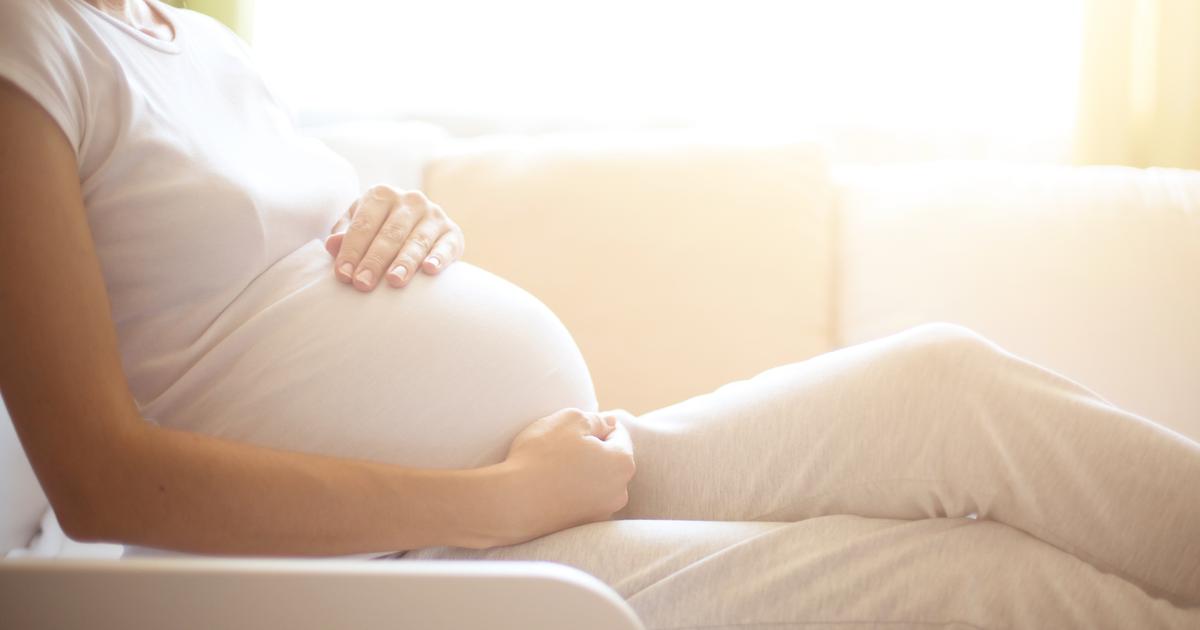When Helena * began to have symptoms of covid-19, she was doubly worried: first, about the virus itself, which is so scary.
Second, because she didn't know if she was pregnant.
As soon as she arrived at her health center to have a PCR, she reported her possible pregnancy.
"Haven't you been tested?" Asked the nurse.
"No, because I have not yet had a delay in the cycle, I have at least a week left before my period comes down," she replied.
Thus, it was impossible to know if it was in condition or not.
Helena was concerned that the coronavirus would harm the fetus in some way in the present or in the future, and so she asked her doctor.
The response of the toilet was that there was no way to know.
"It is such a new disease that time has not yet passed to find out what happens to pregnant women and their children after they are born," she replied.
More information
Pregnant women with covid have a slightly higher risk than the rest of having premature babies
The mistakes that kill women when giving birth
Cesarean sections increase the risk of complications in pregnant women with covid-19
The absence of data on the consequences of covid-19 in pregnant women and their fetuses is one more enigma to unravel among the number of them that this virus carries, but in recent months the results of new investigations that contribute have been known new light on this issue, such as the relationship of the new coronavirus with an increase in preterm births.
This week, several of them are being presented at the 51st World Congress on Lung Health, held this time virtually.
Two of those who will be released this Saturday provide data on how this new disease affects pregnant women: from complications added by obesity to those that occur at the time of delivery, such as the increase in caesarean sections.
The first of these findings suggests that pregnant women who suffer from COVID-19 during pregnancy are at a higher risk of their baby reaching the world through a cesarean section, they may also experience more complications in the postpartum period and are more likely to suffer from thrombi in the placenta.
The
Covid-19 Pregnancy and Postpartum Outcomes research in New York City
, conducted by the Weill Cornell Medical Center
, followed
the births of 675 women in three hospitals in New York (United States).
70 had tested positive for SARS-CoV-2 and the vast majority were asymptomatic.
What the researchers found is that almost half of those who had been infected with the virus had to perform caesarean section: around 46% in both symptomatic and asymptomatic patients compared to 30% in healthy women.
Postpartum complications such as fever, hypoxia (decreased supply of oxygen to the brain) or the need for readmission occurred in 12.6% of the former versus 4.5% of the latter.
Additionally, nine of the 70 women with COVID-19 experienced at least one postpartum complication.
"It was 12.9% of all, much more than 4.5% of women without COVID-19 who experienced some complication," says Malavika Prabhu, professor of obstetrics and lead author of the research.
"This suggests that the postpartum period is an especially vulnerable time for pregnant women with COVID-19."
Likewise, cases of poor vascular perfusion, an indication of the existence of thrombi in the placenta, were found in half of the women with COVID-19: up to 48.3% compared to 11.3% of women without the virus that suffered from this pathology.
"It is a figure well above what would be expected, and it could mean that we are facing one of the specific sequelae of covid-19 in pregnant women.
But more research is needed, ”Prabhu says.
Clots in the placenta are a complication that can cause a decrease in the baby's weight gain, placental detachments, pre-eclampsia (severe hypertension) and the death of the fetus in the most extreme cases.
Obesity, pregnancy and covid-19: a dangerous mix
Another study presented this Saturday focuses on obesity, a problem with pandemic proportions that is responsible for 2.8 million deaths a year, according to the World Health Organization (WHO).
"We were specifically concerned about obesity because it is a factor that aggravates the state of pregnant women who develop viral infections of the flu," explains in a video call Kristina Adams Waldorf, professor of gynecology at the University of Washington and co-author of a study entitled
Pathogenesis and Immunology in pregnant women with covid-19.
Waldorf and his team chose 240 women in state and infected with SARS-CoV-2 from 30 hospitals in Washington state, where around 60% of all annual births in this geographical area occur, between February and June 2020. More than half were in their third trimester of pregnancy and the majority (71%) had symptoms of covid-19.
Among the women who reported their weight before pregnancy, 45% were obese (when the Body Mass Index, which is calculated based on weight and height, is greater than 30 points).
When comparing the prevalence of these with the statistics on adult women with obesity from Washington State, they found "a very surprising difference", in the words of Adams Waldorf: among the latter, the percentage was much lower: 28% suffered from obesity compared to 45% of those in the study.
Given these results, Adams considers it "worrying" that obesity represents a significant risk factor for the increase in diseases in pregnant patients with covid-19, and there are several reasons why the researcher believes that this could be happening.
One of them is that excess adipose tissue can affect the immune response to viral infections, specifically the response to type I interferon, which is a protein secreted by human cells to defend themselves against pathogens such as viruses, bacteria, parasites, etc. .
“We are also concerned that obesity may affect lung mechanics and work of breathing.
Together, these two factors can make pregnant patients with obesity more symptomatic ”, adds the researcher.
In fact, another of Adams Waldorf's findings, published recently in the
American Journal of Obstetrics and Gynecology
,
suggests that the new coronavirus may more severely affect women who were already obese before becoming pregnant.
It is a result that is in line with other similarities regarding excess weight as an aggravating factor of the coronavirus in the general population.
In this case, 46 pregnant women and those infected with covid-19 were followed between February and April 2020, also in hospitals in Washington.
Two thirds of them were overweight or obese.
They found that almost 15% developed a severe COVID-19, and it mostly happened to those who were overweight or obese.
"In my opinion, patients who were already obese when they became pregnant may have a greater risk of suffering a more serious covid-19, and for that reason they should be considered as a special population group," says the obstetrician.
(*) The real name has been omitted at the request of the interviewee.
FUTURE PLANET can follow on
,
and
, and subscribe
here
to our 'newsletter'
.








/cloudfront-eu-central-1.images.arcpublishing.com/prisa/OATWCNRFTFFYPA5MJKI5644CLY.jpg)
